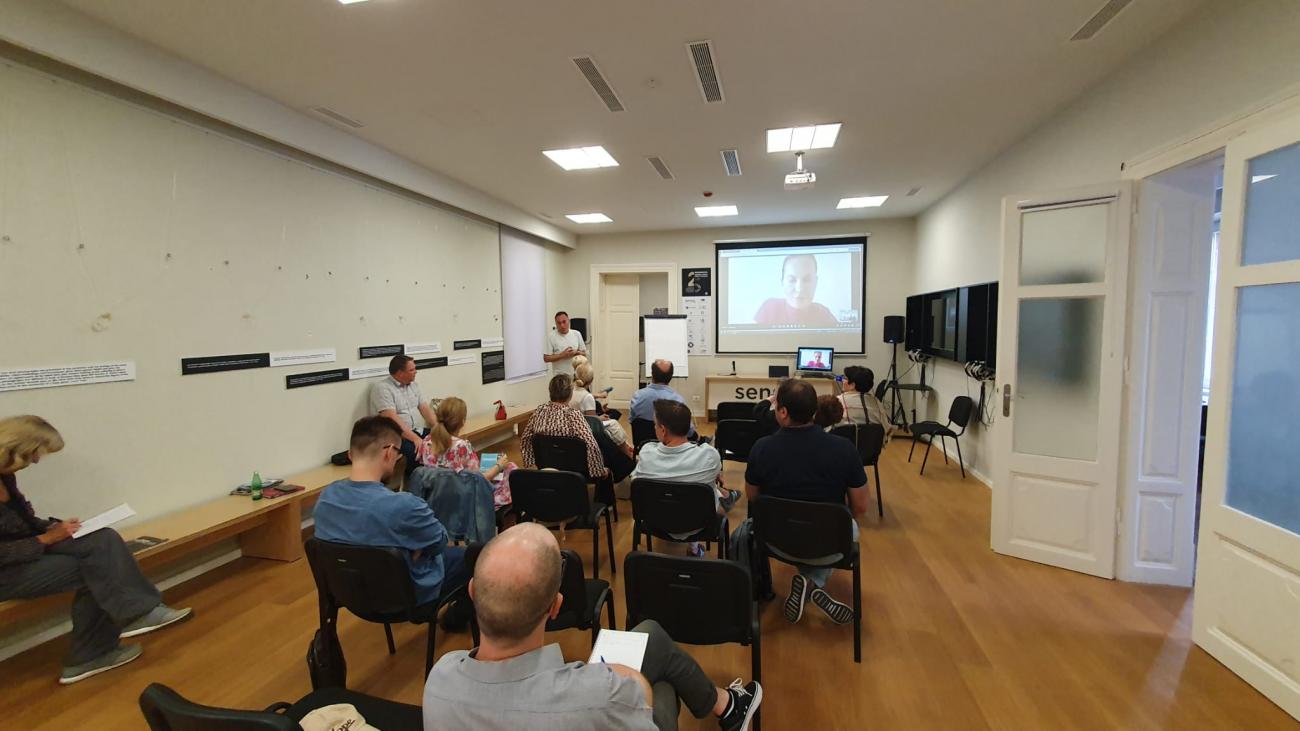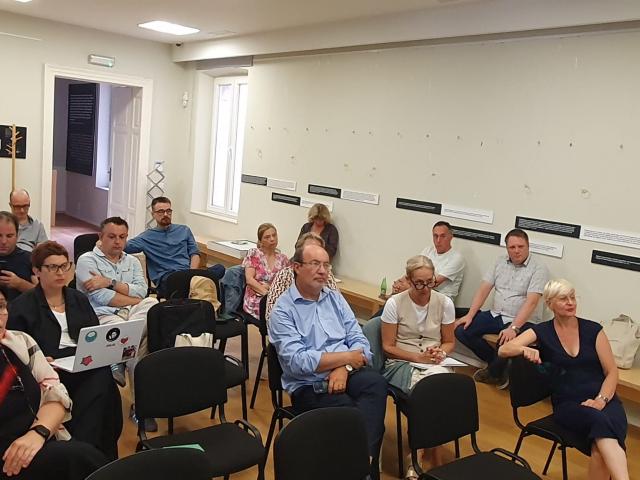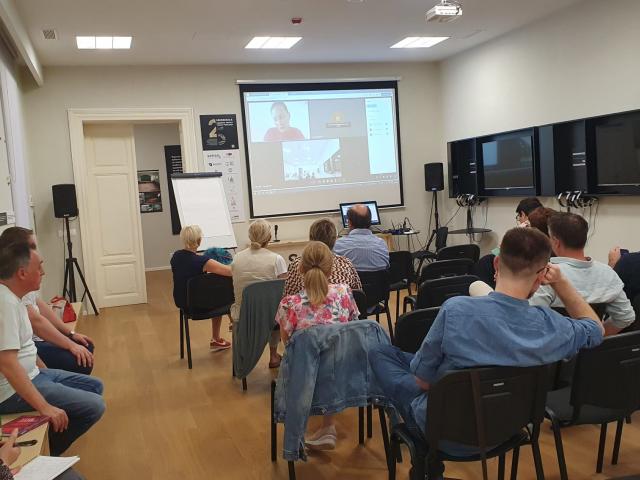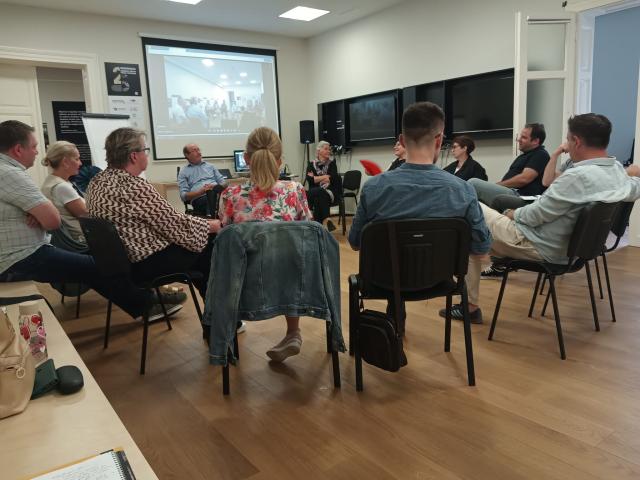History teachers from six countries in the region gathered at the SENSE Center in Pula for a seminar where they exchanged experiences on using the SENSE archive in history teaching. Seminar also offered an opportunity for teachers to summarise impressions on utilising SENSE materials which had been discussing in SENSE webinars over the last two years.
The SENSE Center organized the seminar in cooperation with the Croatian History Teachers Association, and participants were teachers from Croatia, Serbia, Bosnia and Herzegovina, Montenegro, North Macedonia, and Slovenia. Rada Pejić-Sremac, coordinator of the information department of the International Residual Mechanism for Criminal Tribunals, joined via video link. The moderator was Mina Vidaković, head of the SENSE Center for Transitional Justice.
"In teaching, primary sources are important, like those used in SENSE productions," said Mire Mladenovski, a history teacher from Skopje, emphasizing that the facts in SENSE materials are "arranged and framed" in a way suitable for classroom presentation, significantly facilitating a multiperspective approach in teaching, especially sensitive wartime topics. Teachers have found these written and audiovisual materials to be a useful guide in shaping content and teaching methodology.
Josip Naglić, a teacher from Rijeka, directed his students to research historical topics and present them in a format similar to SENSE's interactive narratives, sharing positive experiences with this method at the seminar. Teachers also mentioned the importance of access to verified sources, as they often have to counter unreliable information from the media and social networks.
Dr. Sanja Petrović Todosijević, a senior research associate at the Institute for Recent History of Serbia and co-author of history textbooks for seventh and eighth grades, highlighted the challenge of educating young people about war crimes in an era of escalating violence and the so-called "normalization" of war imagery.
Matej Matković, a history teacher, shared that the consequences of the 1990s wars are still felt even in areas not directly affected by armed conflicts and destruction, such as Slovenia. This particularly impacts the way young people are taught about these events, especially in multiethnic classrooms.
The shared conclusion is that SENSE materials significantly contribute to teachers' efforts to optimally design lessons on sensitive topics from the recent past of the former Yugoslav countries.




